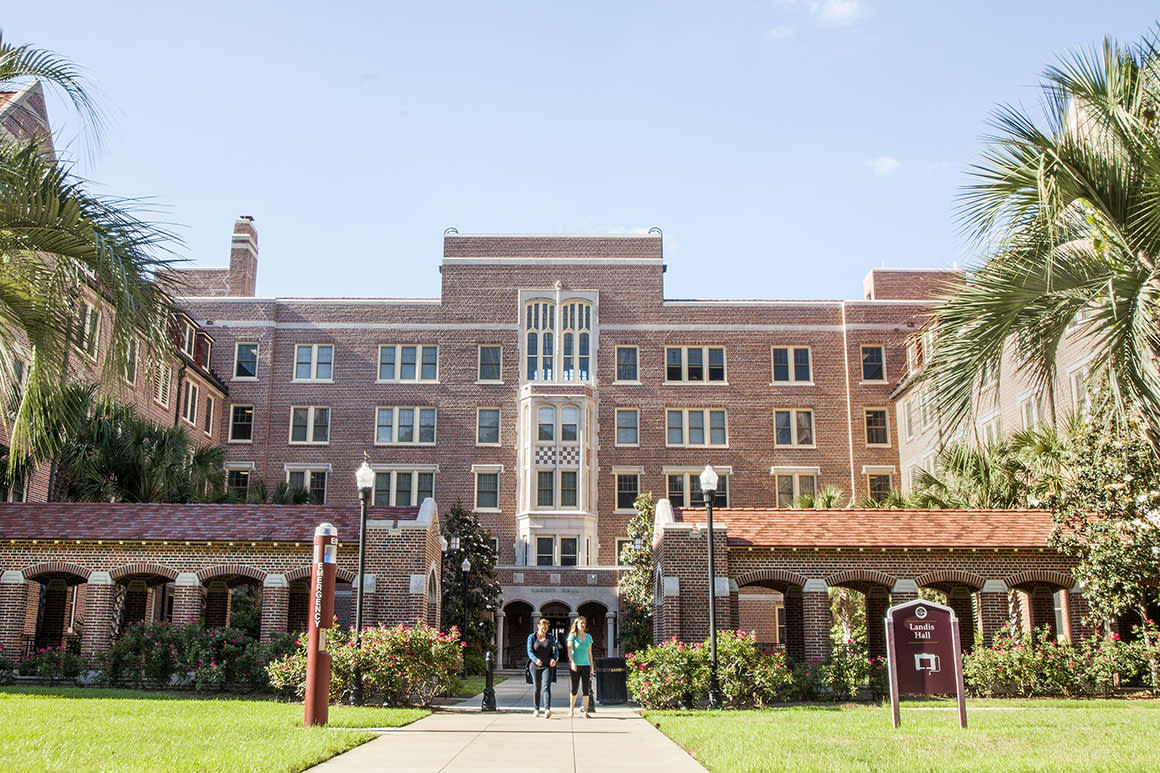Education Department pauses student loan bills, awaiting Congress or Trump to act

- Oops!Something went wrong.Please try again later.
The Education Department has ordered the companies that collect federal student loans to temporarily postpone sending bills to borrowers as the Trump administration figures out how to handle the looming expiration of student loan relief.
Unless Congress or the Trump administration takes action in the coming weeks, the freeze on monthly payments and interest for tens of millions of federal student loan borrowers is set to expire on Dec. 31.
The Education Department, which had been gearing up to collect payments starting in January, now appears to be trying to buy time to figure out how to go about collection. Department officials last week instructed federal student loan servicers to hold off on sending billing statements to borrowers until at least Dec. 8, according to a person familiar with the guidance.
Key context: It is not yet clear how the Education Department plans to restart the collection of student loans early next year. But the timing, just weeks before President-elect Joe Biden takes office on Jan. 20, could create confusion for borrowers. The department’s student aid office has warned that it faces a “heavy burden” to suddenly restart the monthly payments of more than 23 million accounts at once, potentially leading to a spike in delinquencies.
The postponement pushes up against the deadline by which servicers would need to begin sending notices to borrowers for payments due at the beginning of January. Under the terms of their contracts with the Education Department, loan servicers are required to send borrowers a billing statement at least 21 days before a payment is due — a requirement the Obama administration imposed as a consumer protection measure.
President Donald Trump, in announcing his extension of the loan benefits in August, said he would “most likely” further extend the relief at the beginning of December. But the White House has declined to say whether he is still committed to that plan.
Potential change in plans: Federal student loan servicers had been preparing to resume collecting payments in January. The Education Department also started directly notifying borrowers last month through emails and text messages that payments were set to begin “in January 2021.”
But internally, department officials have also discussed the possibility of effectively pushing the due date on federal student loans from January to February, even without further executive action from Trump. At issue is how the Education Department interprets a complicated array of federal requirements governing when monthly payments resume following a period of forbearance.
That option, which still remains in flux at the department, would provide the incoming Biden administration with more leeway to take its own action to suspend payments.
The strategy would not address the interest on federal student loans that is set to begin accruing on Jan. 1, though the Education Department previously retroactively forgave the interest that accrued on student loans for several weeks in March, just before the CARES Act took effect.
An Education Department spokesperson did not comment on the new guidance to loan servicers and would not say when the agency plans to require borrowers to make their first payment in January or February next year.
By the numbers: Approximately 41 million federal student loan borrowers have had interest suspended on their loans since March 13, beginning with the CARES Act and continued under Trump’s executive action over the summer. Roughly 33 million of those borrowers have had their payments paused, though some would have had their payments suspended anyway because they are in school or receiving another type of forbearance. The Education Department also has stopped seeking to collect from the 8 million other borrowers who were in default.
Unclear path in Congress: Extending the student loan benefits beyond the end of the year has been part of ongoing discussions for months over another round of coronavirus relief in Congress. But those talks have failed to produce a bipartisan agreement.
House Democrats have passed Covid relief legislation that would extend the pause on federal student loan payments and interest for at least nine additional months, possibly longer. Democrats have also called on Trump to further extend the benefits through executive action, as he did in August.
A bipartisan stimulus blueprint unveiled Tuesday by a group of centrists senators calls for $4 billion to support student loan relief, though it is not clear what that would entail. Sen. Joe Manchin (D-W.Va.), one of the backers of the proposal, described the student loan provisions in the plan as a “forbearance” during a press conference.
Senate Majority Leader Mitch McConnell on Tuesday separately circulated another GOP relief proposal that did not include an extension of the student loan relief.

